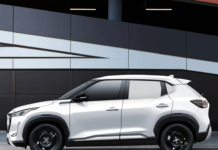The Smarter Mobility Summit Africa that was held at the Sun Arena at Time Square in Pretoria on 1-2 October, showcased inspiring levels of commitment and innovation, but it also shone a spotlight on the obstacles holding back a truly smarter, sustainable mobility ecosystem in South Africa and the rest of Africa.
Ben Pullen, CEO of Generation.e, the driving force behind the summit and Africa’s first-ever electric vehicle road trip (EVRT) says that he is more convinced than ever that South Africa and the continent is ready to enter the era of smarter mobility on a mass scale.
However, he says, a shortage of funding threatens to put the breaks on superb innovation on the continent, and he calls on all stakeholders to pull together and redouble efforts at raising awareness and attracting the support and funding required to make smarter mobility a reality.
“The summit was a massive success and the innovations on display are very exciting, particularly around non-vehicle smarter mobility, such as Lifti – which won the start-up pitch competition. In essence, it is a carpooling platform that connects those needing a ride with empty seats in vehicles going in the same direction. This way we use the vehicles already on our roads without needing to add more.
“These types of innovations demonstrate how smarter mobility is far more than just electric vehicles. Non-vehicle smarter mobility plays an essential role in transforming the country’s transport landscape and that’s why all innovation in this area needs to be nurtured and grown,” he says.
Nduduzo Nyanda, Country Manager for South Africa at Uber, the official mobility partner for the Smarter Mobility Africa summit, says Uber’s technology has become an important part of the transportation fabric of cities.
“All of us want cleaner, less-congested cities where everyone can move freely. In partnership with cities and transit agencies, we can help make public transit more accessible and easier to use while reducing private car ownership. Just as personal car ownership had a fundamental impact on mobility in the last century, new forms of transportation are spurring another revolution—one that comes with its own set of challenges and opportunities. Today, we’re at an inflection point, the private and public sectors need to come together and collaborate on ways to create smarter, safer and more efficient ways of getting people from A to B.
That’s why we continue to support initiatives like these that provide a platform to discuss shared goals, so that together, we can create a better future for the cities we live and operate in.”
Innovation requires funding and Pullen says it has been reported that out of all the funding globally that has gone into tech recently, less than 1% made its way to Africa. “As tech is the backbone to introducing smarter mobility, this has to change. We must find ways to attract investors, corporates and others into the space. Events such as the summit and EVRT are a good first step at raising awareness and attracting funding – but we must use this excitement as a springboard to push onwards.
“Our feedback has been fantastic – people have responded exceptionally well to the events, and so now we must shift up a gear!”
In addition to awareness and funding, it is crucial that all spheres of government are on board, he says. Referring to the partnership with the Department of Transport, Gauteng Provincial Government, City of Tshwane, SANEDI, and SANRAL, Pullen said it is encouraging to see political-will and appreciation for the importance of a sustainable transport sector.
He added that national government should consider putting in place strong incentives to switch to smarter mobility solutions, as besides the environment benefitting, there are a slew of potential economic benefits to be enjoyed by the country as a whole and particularly by entrepreneurs and small businesses.
“We are on the road now. Our destination? An Africa that embraces smarter mobility on a large, meaningful scale,” says Pullen.
Provided by EVRT Africa




























